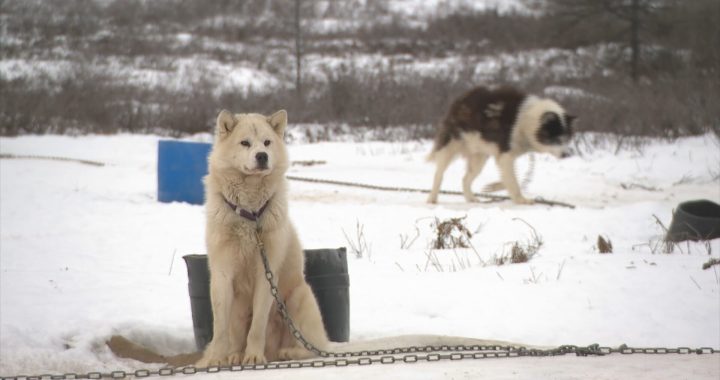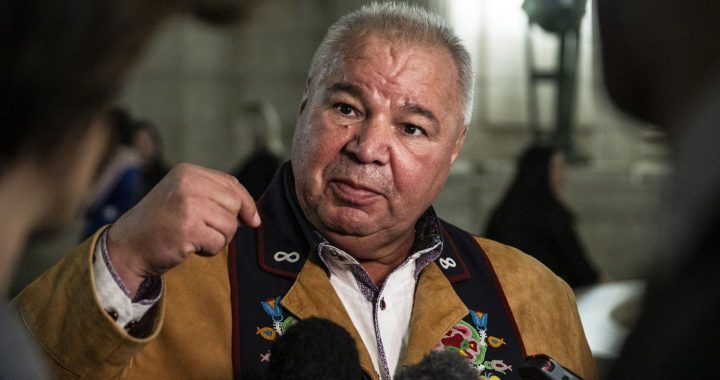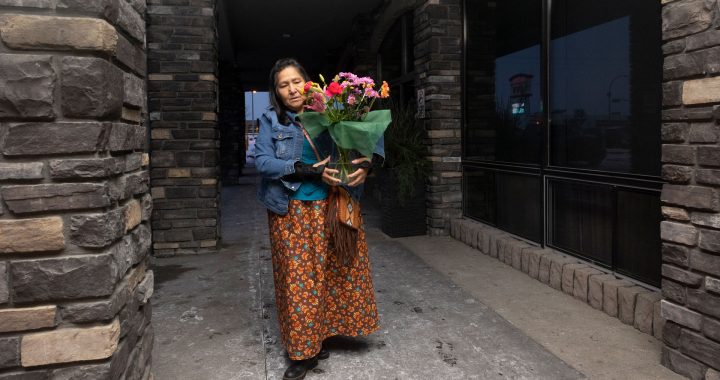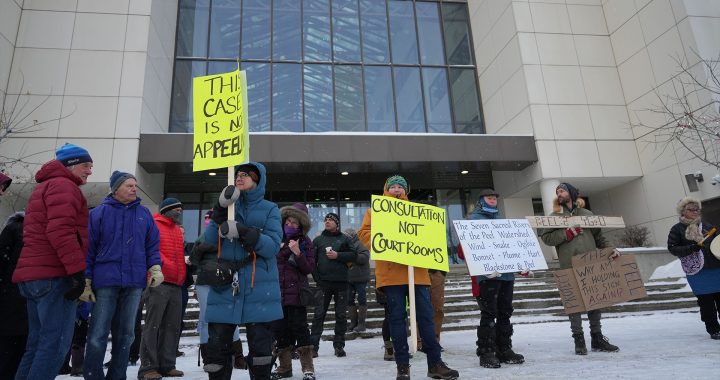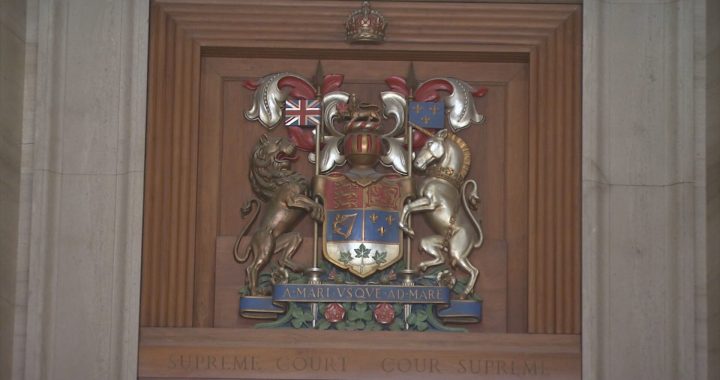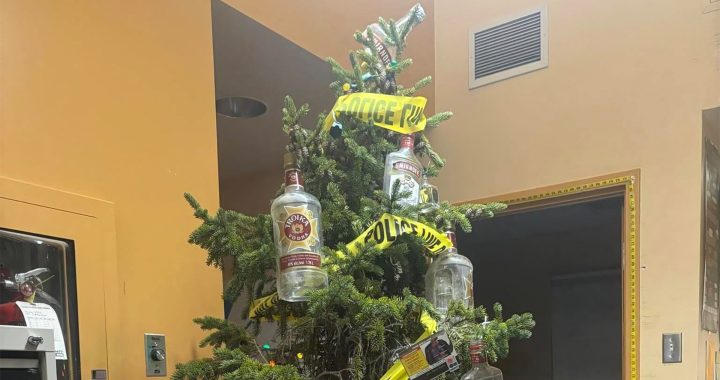An Inuk member of the Nutrition North Advisory Board has penned a letter to Northern Affairs Minister Dan Vandal and resigned over Canada’s support of Israel.
“With everything that’s happening in Palestine and the position of the current government, I just got even more discouraged and felt like I say in the letter,” said Beth Kotierk, a lawyer who has been on the advisory board since 2021.
“That reconciliation isn’t really taken seriously and it can’t be taken seriously when we’re supporting a genocide today.”
The letter by Kotierk, who also serves on the board of the Qajuqturvik Community Food Centre, was submitted to Vandal and dated Dec. 8. It was later posted to Facebook and on a group called the Canadian Palestinian Association of Manitoba.
“The occupation of Palestine has been going on for 75 years and during that time, Canada has funded and supplied weapons to the non-democratic, settler-colonial apartheid-state of Israel,” Kotierk wrote. “The settler colonial violence the we see in Palestine is intrinsically linked to the settler colonial violence carried out here in Canada against Indigenous peoples. Similar tactics have been used in Canada to displace Indigenous peoples from the land, force econonic dependency and spread anti Indigenous propaganda while suppressing Indigenous voices.
“Canada’s reserve and residential school system inspired the architects of apartheid South Africa, which in turn, has laid the foundation for the apartheid state of Israel. Until Canada commits to dismantling colonial systems across the globe, its commitment to reconciliation with Indigenous peoples is meaningless.”
Kotierk is one of seven people on the Nutrition North Advisory Board. According to the federal government’s web page, the board assists “the Minister by providing strategic advice from the standpoint of northern communities, taking into account the information and views provided by researchers, stakeholders, and experts in areas relevant to the program.”
The government said there are 122 communities eligible for the Nutrition North program that provides food subsidies and grants for hunting.
APTN reached out to Vandal for comment. In a statement, the minister thanked Kotierk for her service but didn’t respond to why she handed in her resignation.
“We have seen the targeting of Palestinian food sovereignty by the lOF [Israel Occupation Forces, commonly called the IDF, or Israeli Defence Forces] through the destruction of millions of Palestinian farms and olive trees since the beginning of this occupation,” Kotierk added in the letter.
“Yet Canada still provides political support to lsrael by repeatedly voting against UN resolutions that affirm Palestinian human rights and by continuing to provide diplomatic cover for Israel. These actions have led to the breakdown of international law making the world less safe for everyone.”
Canada’s position on the Israeli conflict has been criticized inside the House of Commons and in protests across the country. Despite marches, rallies and pressure from the federal NDP and Bloc Quebecois, Prime Minister Justin Trudeau has been reluctant to call for a cessation of violence other than to ask for a “humanitarian pause” to the fighting.
The protests are fueled by the overwhelming number of casualties being suffered by Palestinians living in an area called Gaza – a point that was acknowledged by Global Affairs Minister Melanie Joly.
“This week has been two months since Hamas attacked Israel and the Israel-Hamas conflict started. Since then, we know that there were 1,200 lives that were lost in Israel,” Joly said in a statement. “We saw horrific scenes of sexual violence against women. There’s been also 15,000 people that have died in Gaza, and mainly Palestinian women and children have been killed.
“The price of justice cannot be the suffering of all Palestinians. And so, the violence must stop. We need to make sure that we get to a two-state solution, and Canada will get involved in making sure that we can launch conversation about the two-state solution.”
Gidimt’en Checkpoint stands in solidarity with Palestine. We demand justice for the genocide of ALL people and remember the genocide against our own people. History is repeating itself and it’s up to the people of the world, From Wedzin Kwah to the sea. #FreePalestine pic.twitter.com/bMYkenASMu
— Gidimt’en Checkpoint (@Gidimten) December 10, 2023
Pressure has also been coming from First Nation, Inuit and Métis people on social media.
“Gidimt’en Checkpoint stands in solidarity with Palestine,” said one post on X, formerly known as Twitter.
Ellen Gabriel, who was on the front lines in Kanesatake when the Canadian Army surrounded the Mohawk Territory in the early 1990s, has been posting about the conflict since October.
“How many dead children, maimed children and civilians do you need to see in order to Stop the carnage/#genocide,” she wrote on Dec. 10. “History will remember.”
According to Kotierk, the government’s upcoming funding cut to the hunting program under Nutrition North is an example of the violence used against Indigenous peoples in Canada.
“We can see this lack of commitment clearly with the decision to cut the annual budget for the Harvester Support Grant program by 80% for the coming fiscal year,” Kotierk wrote. “These are funds intended to support Indigenous food sovereignty in communities across the north, including in Nunavut where over 75% of lnuit experience food insecurity.
“I cannot with a clear conscience, continue this work with a government that supports the genocide of the Palestinian people while purporting to seek reconciliation for the same genocidal tactics and mindsets being used against Indigenous peoples.”




